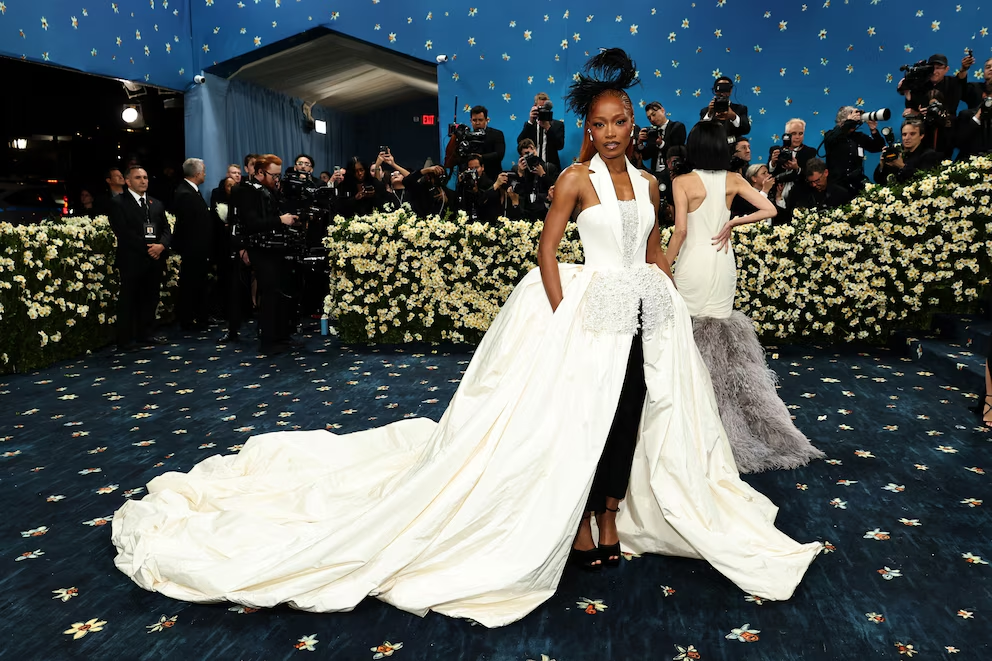Keke Palmer is no stranger to the spotlight, but her latest single, “My Confession” (released May 9, 2025), offers something new: an unfiltered glimpse into her personal struggles, heartbreak, and ultimate journey to self-empowerment. Known for her dynamic talent across acting, singing, and hosting, Palmer now delivers her most vulnerable and honest artistic expression to date—channeling the pain of a very public breakup into a soul-baring anthem of strength and healing.
Addressing the Past: From Las Vegas to Letting Go
“My Confession” takes fans directly into Palmer’s emotional landscape following her breakup with ex-partner Darius Jackson, and the public fallout that began after a now-infamous night at Usher’s concert in Las Vegas. The lyrics pull no punches:
“Summer ’23 we was in Vegas right / Broke up with me and you hopped up on a flight.”
These opening lines clarify that the relationship had ended prior to the viral moment, dismantling the public perception that Palmer had acted inappropriately while still with Jackson.
The public scrutiny reached its peak when Jackson tweeted, “It’s the outfit tho… you a mom”—a moment that ignited widespread debate over body autonomy, respect, and gender roles. In the second verse, Palmer responds directly:
“48 hours later online / Made me a villain for sympathy but you lied.”
It’s a raw acknowledgment of how narratives are often twisted online, and a powerful reclaiming of her voice.
A Visual Statement: Symbolism and Social Commentary
The music video for “My Confession” features a striking visual cue—a screenshot of Jackson’s viral tweet—underscoring the emotional damage inflicted by the moment and the media frenzy that followed. Rather than shy away, Palmer places the controversy front and center, reframing it through her own lens.
Palmer on Instagram: “This Is My Most Vulnerable Work Yet”
In a heartfelt Instagram post accompanying the release, Palmer described “My Confession” as her most personal project to date. She explained:
“It’s exactly what it sounds like—me giving voice to the feelings I buried.”
Her transparency emphasizes that the song is not a retaliation, but a form of healing and self-therapy. It’s a declaration of closure, not through confrontation, but through introspection:
“Sometimes the closure we need doesn’t come from a conversation—it comes from being honest with ourselves.”
A Collaboration Rooted in Truth
Palmer co-wrote the track with Tayla Parx, a longtime friend and acclaimed songwriter. She described the process as “raw, emotional, and real,” highlighting the safe creative space that allowed her to fully express the heartbreak, anger, and eventual peace she found.
Together, they crafted a piece that speaks to:
- Heartbreak and betrayal
- Public judgment and misinformation
- The journey from pain to empowerment
Not Just a Song—A Cultural Moment
With “My Confession,” Palmer joins a growing list of artists using their platforms to challenge public narratives and reclaim personal agency. But what makes her single stand out is its intimate honesty and relatability. Fans have long admired Palmer’s resilience, and this song deepens that admiration by showing her strength not just in action, but in vulnerability.
The Bigger Message: Reclaiming the Narrative
“My Confession” isn’t just about Keke Palmer’s experience—it’s about anyone who’s had their story hijacked, their emotions silenced, or their pain misunderstood. It’s about reclaiming control, not just of the narrative, but of one’s healing process.
Why It Matters
Palmer’s willingness to confront public controversy head-on, without bitterness, showcases a mature, grounded perspective on personal growth. She doesn’t seek revenge or pity—just understanding and truth. This emotional clarity is what resonates most with listeners navigating their own hardships.
Final Thoughts
With “My Confession,” Keke Palmer proves that her voice extends beyond performance—into authentic storytelling and emotional empowerment. The single is more than just a catchy track; it’s a cultural commentary, a cathartic release, and a defining moment in her career as a musician and truth-teller.
As the song climbs streaming charts and dominates conversations online, it’s clear that Palmer’s message is striking a chord: we all have the right to heal, speak our truth, and move forward—on our own terms.

